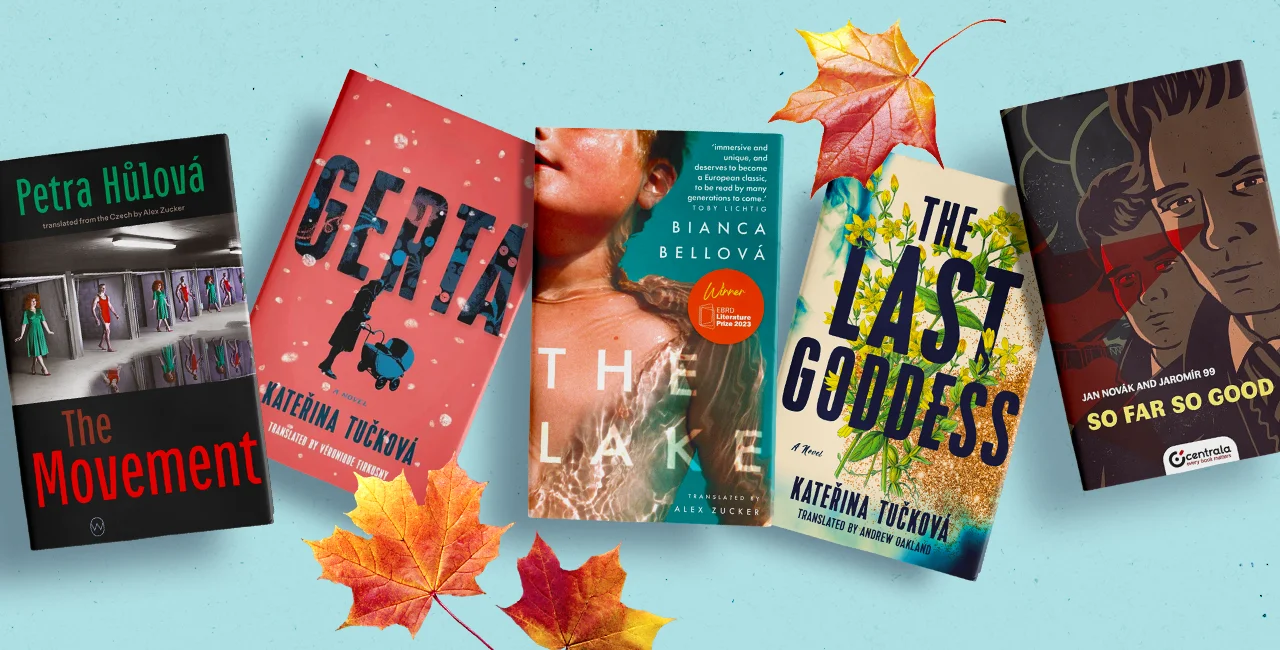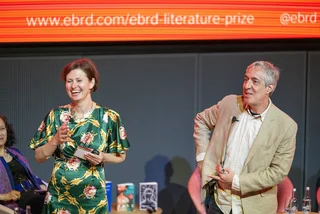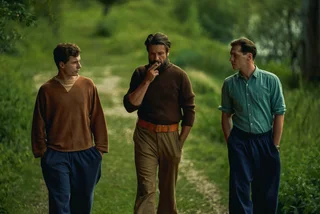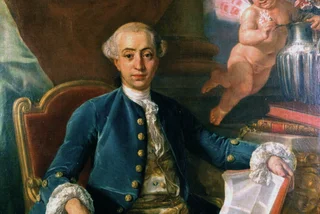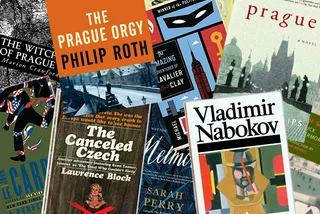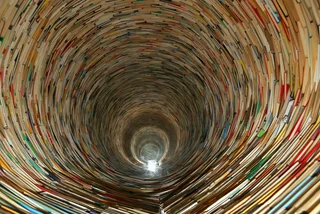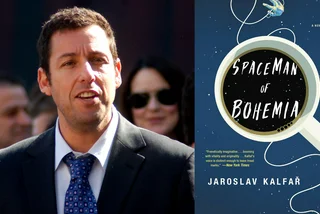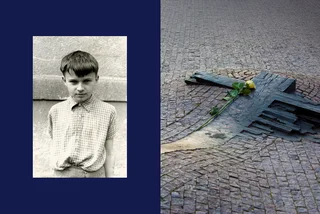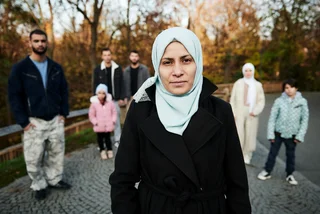As autumn sets in, the time is ripe for long evenings nestled under a warm blanket with a good book as a trusted companion. Here’s a selection of five page-turners from some of the most talented contemporary Czech writers, recently translated into English.
The Lake, by Bianca Bellová
Written by Prague-born author with Bulgarian roots Bianca Bellová, The Lake (Jezero) is one of the Czech literary sensations of the past few years. Originally published in 2016, it won the EU Prize for Literature and the prestigious Czech Magnesia Litera Prize for Best Book of the Year.
Already translated into over 20 languages, it’s now finally available to English-speaking readers thanks to the work of celebrated translator Alex Zucker. Last June, its English version received the EBRD Literature Prize, making Bellová the first woman and first Czech ever to receive the award.
I’m still in shock https://t.co/w1ksL0zIhf
— Alex Zucker (@alexjzucker) June 15, 2023
Inspired by a report on the drying up of the Aral Sea, The Lake is a rough coming-of-age story set in a dystopian world of environmental ruin, social hardship, and military violence. Searching for his long-lost mother, a young boy is forced to go out into a devastated land and fight for his survival, “very much like Ulysses going out into the world, finding out something about himself and coming home,” the author told Czech Radio to explain the universal appeal of a narrative that draws strongly on post-Soviet aesthetics.
A translator and interpreter herself, Bianca Bellová came out on the literary scene with a bang in 2009 with her first book A Sentimental Novel, followed by the equally popular Dead Man (2011) and Nothing Happens All Day (2016). Her latest novel, These Fragments (2021), was published in 2021.
So Far, So Good, by Jan Novák and ‘Jaromír 99’
A controversial topic handled with art and finesse: after the success of Zátopek, So Far, So Good (Zatím dobrý) is the latest collaboration between well-known Czech-American writer, playwright, and screenwriter Jan Novák and the visual artist known as ‘Jaromír 99’.
Originally written as an English-language novel that was never published, So Far, So Good was later translated into Czech by Petra Žallmannová in 2004 and won the prestigious Magnesia Litera Prize for Best Book of the Year.
Adapted into a Czech-language graphic novel in 2018 and recently translated back into English by Robert Matzerath, it follows the incredible real-life fate of brothers Josef and Ctirad Mašín and their band of anti-Communist urban guerrillas in early 1950s Czechoslovakia. Hailed by some as heroic freedom fighters, and seen by others as ruthless killers responsible for the death of numerous innocent people, the Mašín brothers and their actions continue to divide public opinion to this day.
If you want to dive deeper into this issue, the upcoming Czech movie Brothers (Bratři), directed by Tomáš Mašín, who is a distant relative of the hot-blooded duo, is released in cinemas on Oct. 26.
The Movement, by Petra Hůlová
Imagine a world ruled by women, where the state ideology requires men to be attracted to their inner qualities and not their physical appearance. This is the thought-provoking premise of Petra Hůlová’s latest social satire, The Movement (Stručné dějiny Hnutí), first published in Czech in 2018 and recently translated into English by Alex Zucker.
In this futuristic world where gender roles and sexual hierarchies are turned upside down – not unlike a recent pink and glittery global phenomenon – men who can’t control their desires and comply with the new norms are sent to so-called internment and re-education centres. A guard in one of these facilities, the narrator recounts the rise of the feminist Movement, her experiences and the challenges faced by the new order.
Shooting to fame with her 2002 Mongolia-based best-selling debut All This Belongs To Me (Páměť mojí babičke), Petra Hůlová is seen as one of the rising stars of a younger generation of Czech authors.
Gerta: A Novel, by Kateřina Tučková
Beautifully translated by Véronique Firkusny, celebrated Czech author, art historian, and curator Kateřina Tučková’s award-winning novel Gerta (Vyhnání Gerty Schnirch) takes on the difficult topic of Czechoslovakia’s post-war expulsion of ethnic Germans through the eyes of its eponymous heroine, forced to go on the so-called Brno death march with her infant.
First published in Czech in 2009 and awarded Magnesia Litera’s readers' prize the following year, the novel provides an emotional and empowering account of Gerta’s ordeals and her quest for justice and forgiveness in a turbulent post-war Europe.
To stay up to date with the latest news of the Czech publishing scene, be sure to follow the activities of the Czech Literary Centre.
The Last Goddess, by Kateřina Tučková
Tučková's The Last Goddess (Žítkovské bohyně), recently translated into English by Andrew Oakland brought the author critical and popular fame in 2012.
The Brno native was recently awarded the State Prize for Literature for her latest novel Bílá voda (2022), becoming only the third woman to receive it since the 1990s.
Translated into over 20 languages and based on extensive historical research, The Last Goddess plunges the reader into a fantastic tale of superstition, science and belief at the heart of the White Carpathian mountains.
A skeptic by nature and ethnography scholar by profession, protagonist Dora Idesová’s research into the Žítková goddesses – a centuries-old lineage of women reputed for their healing abilities and otherworldly powers – takes her back from the 17th-century’s persecution of witches to communist Czechoslovakia and unravels a much more personal story than she had suspected.
What Expats.cz staffers and contributors are reading now
The Nonconformists, by Brian Goodman
Jules Eisenchteter, contributor
Avid English-speaking readers of Czech literature will also want to make a note of our bonus pick. The Nonconformists: American and Czech Writers across the Iron Curtain is an insightful new essay by American scholar Brian Goodman looking at the personal, aesthetic, and political connections between authors over four decades of East-West division.
The essay deals with topics that range from the influence of Kafka on American writers in the early 20th century to the impact of Beat poet Allen Ginsberg’s notorious stay in 1960s Czechoslovakia; and from Josef Škvorecký’s crucial work in distributing and translating Czech works in the West to the role played by Philip Roth, John Updike, Ivan Klíma or Milan Kundera in facilitating the transnational circulation of ideas, language and political concepts of dissent throughout decades of ideological division and cultural censorship.
An assistant professor at Arizona State University specializing in American studies, human rights, and dissident cultures, Brian K. Goodman explores a lesser-known side of the lives and works of world literature giants and sheds a spotlight on mutual influences that still resonate in today’s Czech and American countercultural spheres.
A Brief History of Living Forever, by Jaroslav Kalfař
Elizabeth Zahradnicek Haas, editor
The follow-up to his acclaimed 2017 debut novel Spaceman of Bohemia sees Czech author Jaroslav Kalfař take on big tech, an increasingly authoritarian American right, the climate crisis, and doomsday cults.
The story is narrated by a seemingly simple Czech village woman diagnosed with a terminal illness who, after discussion with a talking Christmas carp embarks on a journey to find her long-lost daughter in America. Her adventures take on a sci-fi twist as she enters her daughter's consciousness after dying.
Readers will relish the narrative detours into the protagonist's past life as a dissident in communist Czechoslovakia, as well as her attempt at remaking a beloved Karel Čapek novel into a film. Kalfař's dystopia manages to pack absurdist humor and social commentary into a love letter to the Czech lands.
Prague: Belonging in the Modern City
Ioana Caloianu, content manager
While not written by a Czech author, American historian Chad Bryant's novel is a compelling narrative about Prague, where belonging has often been synonymous with national identity. However, not all residents have felt included in the life of the city they call home due to their political orientation, religion, or ethnicity. Bryant chronicles the lives of five extraordinary individuals who, spanning two centuries, crafted their own sense of belonging.
From a guidebook writer to a German-speaking journalist, a Bolshevik carpenter, an actress of mixed heritage, and a Czech-speaking Vietnamese blogger, they embody the struggle between exclusionary nationalism and diverse realities. Through their resilience, such characters forge alternative communities and become the embodiment of a city built for others. This makes Prague: Belonging in the Modern City a compelling exploration of place, nation, and the universal need for belonging.












 Reading time: 6 minutes
Reading time: 6 minutes 